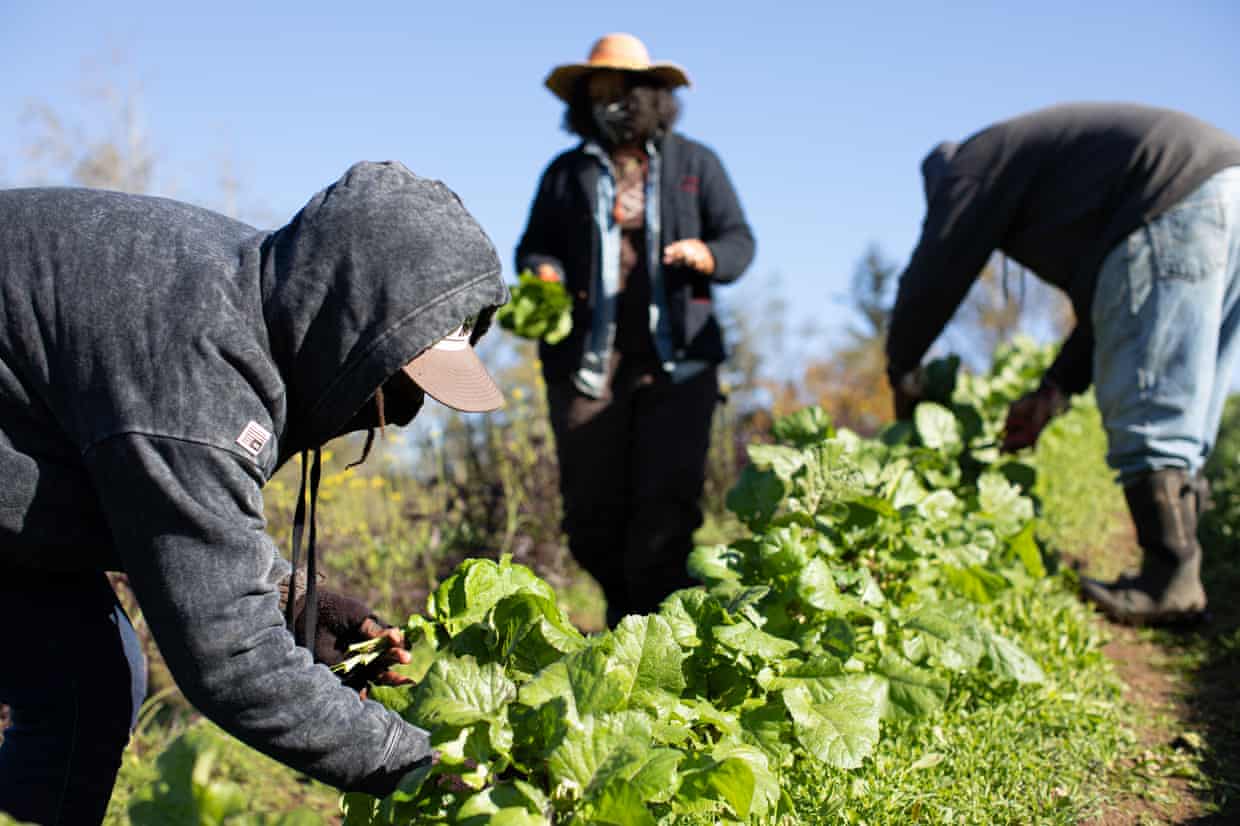Black and other minority farmers were dealt a new legal blow on Wednesday when a Florida federal court issued a preliminary injunction halting a key part of the Biden administration’s federal stimulus relief package that forgave agricultural debts to farmers of color.
U.S. District Judge Marcia Morales Howard halted loan forgiveness payments and debt relief for disadvantaged farmers anywhere in the United States, according to the Middle District Court of Florida ruling. The lawsuit was filed by White farmer Scott Wynn of Jennings, Fla., who also has farm loans and has faced financial hardship during the pandemic. He said the debt relief program discriminates against him by race.
Howard wrote that in crafting this debt program benefiting farmers based on race that “Congress also must heed its obligation to do away with governmentally imposed discrimination based on race.” She added that “it appears that in adopting Section 1005’s strict race-based debt relief remedy Congress moved with great speed to address the history of discrimination, but did not move with great care.”
Yet, Howard also made clear that the Agriculture Department could continue to prepare to deliver the debt relief until the program is found to be “constitutionally permissible.”
The debt forgiveness program is part of President Biden’s American Rescue Plan, and from the moment the USDA launched the program, it’s faced assault in the courts. Approximately $4 billion was slated to go to disadvantaged farmers, primarily for debt relief, but also for grants, training and education.
The program was already temporarily on hold, due to a separate restraining order in a case by a White farmer in Wisconsin. However, even if that Wisconsin order is reconsidered or even reversed in July, when a ruling is expected, this new nationwide injunction would still keep the program on hold for some time.
The Florida case is considered the first nationwide preliminary injunction, said lawyers for the group Pacific Legal Foundation, which filed the lawsuit in May.
“This program is discriminatory because it bases eligibility for loan forgiveness solely on the basis of being a member of a minority group, regardless of your circumstances,” Wen Fa, an attorney with Pacific Legal Foundation said Wednesday. “If you’re a White farmer, regardless of your circumstances, you are categorically ineligible.”
A request for comment from the USDA was not immediately returned. The White House referred questions for comment to the U.S. Department of Justice.
But a White House official pointed out that during the pandemic, socially disadvantaged communities dealt with disproportionately higher share of coronavirus infection rates, hospitalizations, death and economic pain. Previous rounds of coronavirus stimulus to farmers included significant gaps and disparities in the level of assistance, the official said. The American Rescue Plan was intended to address some of the economic damage to socially disadvantaged borrowers.
Black farmer groups have talked about the money as a form of reparations for African Americans who have suffered a long history of racial oppression (about a quarter of disadvantaged farmers are Black).
Black farmers in America have lost more than 12 million acres of farmland over the past century, a result of what agricultural experts and advocates for Black farmers say is a combination of systemic racism, biased government policy, and social and business practices that have denied Black Americans equitable access to markets.
Corey Lea, a beef and pork rancher in Murfreesboro, Tenn., who advocates for Black farmers, has said the debt relief program is fair. “White farmers received nearly $9.7 billion in pandemic relief in October of 2020 and socially disadvantaged farmers received less than 1 percent of that money,” he said.
In the Florida case, Wynn argues that as a farmer of sweet potatoes, corn and cattle, he was hit hard by the pandemic, reducing his income, which mostly went to pay federal farm loans. He filed the lawsuit because he was not allowed to apply for debt forgiveness because he is White.
The debt cancellation provisions in the American Rescue Plan were inspired by legislation called the Justice for Black Farmers Act of 2021, said Tracy McCurty, executive director of the Black Belt Justice Center, a group that works with Black farmers. That bill provided debt cancellation, federal and state tax relief, and the return of offsets to Black farmers who participated in what she said were disastrous racial discrimination lawsuits in the 1990s, which “left the vast majority of Black farmers, over 22,000, in unconscionable debt, threat of foreclosure, and no legal recourse to save their family farms.”
John Boyd, a fourth-generation farmer and president of the National Black Farmers Association who has been working for Black farmer reparations for decades, said that the Florida federal court has left open the door to change its mind but has strongly suggested it wouldn’t.
“I am very disappointed to read this Florida decision,” Boyd said by email.
This article originally appeared in The Washington Post.






